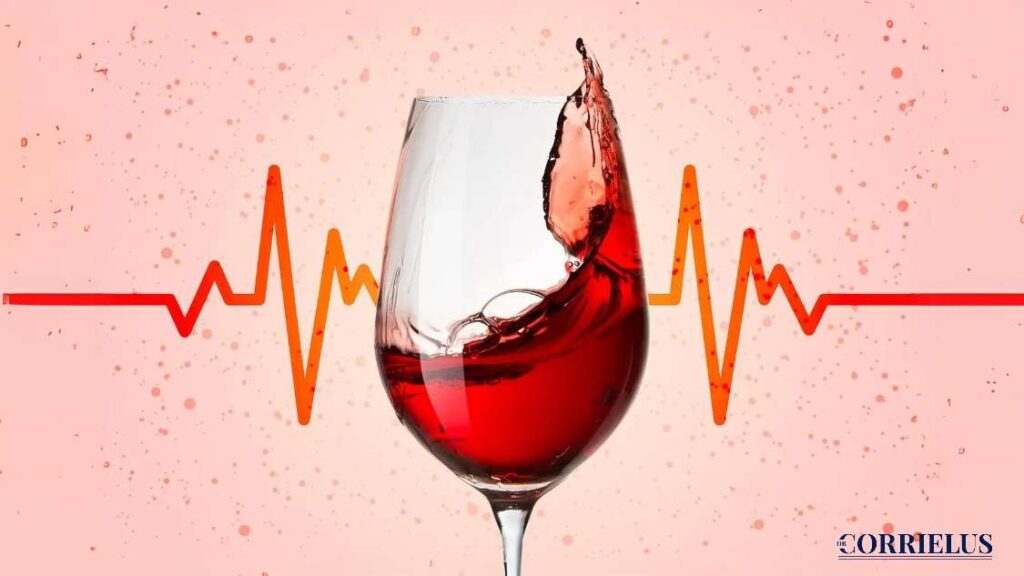This blog highlights the impact of alcohol on heart health, focusing on its link to high blood pressure and the potential development of heart disease. It discusses recommended daily alcohol intake and identifies symptoms of excessive drinking, including physical and emotional effects. The post emphasizes the advantages of abstaining from alcohol, such as lower blood pressure and improved overall health. Readers are encouraged to consider these factors to maintain a healthier lifestyle and protect their heart.
Overview
Alcohol is a common part of many social activities. While some people enjoy a drink, it’s important to know how alcohol affects our heart health. This guide will explain how drinking too much alcohol can lead to problems like high blood pressure and heart disease. We’ll also discuss the benefits of not drinking alcohol and what to look for in terms of symptoms.
Alcohol and High Blood Pressure
High blood pressure, or hypertension blood pressure, can be caused by drinking too much alcohol. Here are some key points to consider:
- Increased Risk: Drinking more than the recommended alcohol intake per day can raise your blood pressure.
- Strain on the Heart: High blood pressure puts extra strain on your heart, which can lead to heart disease over time.
- Withdrawal Symptoms: If you stop drinking suddenly, you might experience symptoms like anxiety or shakes. These are related to drinking too much alcohol.
- Long-Term Effects: Over time, high blood pressure can lead to serious health issues, including heart attack and stroke.
- Moderation is Key: Limiting alcohol can help lower your blood pressure and reduce your risk of heart problems.
Recommended Alcohol Intake Per Day
Knowing how much alcohol is safe to drink is important for heart health. The recommended alcohol intake per day varies based on gender:
- For Men: Up to 2 drinks per day.
- For Women: Up to 1 drink per day.
- Definition of a Drink: One drink is usually defined as:
- 12 ounces of beer
- 5 ounces of wine
- 1.5 ounces of distilled spirits
- Stay Within Limits: Sticking to these guidelines helps protect your heart.
- Healthier Choices: If you drink, choose lower-calorie options to reduce overall intake.
Drinking Too Much Alcohol Symptoms
Drinking too much alcohol can lead to various symptoms that affect both your mind and body. Here are some common drinking too much alcohol symptoms:
- Dizziness or Lightheadedness: This can occur after consuming large amounts.
- Nausea or Vomiting: Drinking too much can upset your stomach.
- Headaches: A common side effect after heavy drinking.
- Memory Loss: Difficulty remembering events from when you were drinking.
- Mood Changes: Alcohol can affect your emotions, leading to sadness or anger.
Signs of Heart Disease from Alcohol
It’s important to recognize the signs of heart disease that may result from alcohol consumption. Here are some signs of heart disease from alcohol:
- Chest Pain: This may happen during physical activity or even at rest.
- Shortness of Breath: Feeling breathless when doing simple tasks.
- Fatigue: Constant tiredness, even after rest.
- Swelling: Noticeable swelling in legs or feet.
- Irregular Heartbeat: Feeling your heart racing or skipping beats.
If you notice any of these symptoms, it’s important to see a doctor right away.
Benefits of Not Drinking Alcohol
Choosing not to drink alcohol can have many positive effects on your health, especially for your heart. Here are some benefits of not drinking alcohol:
- Lower Blood Pressure: Not drinking helps keep your blood pressure in check.
- Improved Heart Health: Your heart will work better without the strain from alcohol.
- Better Sleep: Without alcohol, you can enjoy deeper, more restful sleep.
- Weight Control: Alcohol is high in calories, and not drinking can help with weight loss.
- Mental Clarity: You may feel more focused and clear-headed without alcohol.
Side Effects of Alcohol
While some people enjoy a drink, it’s crucial to understand the side effects of alcohol. Here are some common side effects of alcohol:
- Dehydration: Alcohol can cause your body to lose water.
- Digestive Issues: Drinking too much can upset your stomach and cause heartburn.
- Liver Damage: Long-term heavy drinking can harm your liver.
- Increased Anxiety: Alcohol can worsen feelings of anxiety.
- Risky Behaviors: Drinking can lead to poor decision-making.
- Blood Pressure: It affects your blood pressure to great extent
A word from the doctor —
Alcohol consumption can significantly impact heart health, especially when it leads to high blood pressure and other serious health issues. It’s essential to be aware of the recommended alcohol intake per day and the signs of heart disease from alcohol. If you notice any drinking too much alcohol symptoms, it’s important to seek help. On the other hand, embracing the benefits of not drinking alcohol can lead to a healthier, happier life. Always consult with a healthcare provider if you have concerns about your alcohol consumption and its effects on your heart health.
Schedule a consultation with Dr. Sanul Corrielus right away if you have questions about your heart health!



